Adolf Busch: Chamber Music, Volume One
Adolf Busch (1891-1952) enjoys a reputation as one of the greatest of all violinists: his recordings of Beethoven with the Busch Quartet have never been surpassed. But Busch was also one of the major composers of his day, equally natural as contrapuntist and melodist, with a style that owed much to his boyhood idol, Max Reger. Yet, always a man of principle, he sacrificed his career as both violinist and composer with his dignified refusal to perform or be performed in Nazi Germany. This CD of his lyrical writing for clarinet, the first in a series of recordings of Busch's light-filled chamber music, is part of the rediscovery of one of the leading musicians of his day.
Bettina Beigelbeck, clarinet
Busch Kollegium Karlsruhe
Listen To This Recording:
-
Hausmusik: Duet No. 1, Op. 26a for violin and clarinet (1921)
- I Introduzione: Vivace, ma non troppo
- II Tema con variazioni: Tempo di Menuetto
- III Rondo: Allegretto
- I Praeludium: Molto adagio
- II Fuge
- III Andante tranquillo ma sempre un poco grazioso
- IV Scherzo: Vivace assai
- V Rondo: Allegro ma non troppo
- No. 1 Adagio espressivo
- No. 2 Allegretto comodo e un poco scherzando
- No. 3 Vivace assai
- No. 4 Tranquillo
- No. 5 Molto adagio
- No. 6 Moderato, ma con spirito e scherzando
- No. 7 Grazioso e capriccioso, ma non troppo presto
- I Allegro con spirito (ma non troppo presto)
- II Larghetto
- III Intermezzo: Andante sostenuto
- IV Allegretto amabile e grazioso
- Variations on an Original Theme, Op. 53c for clarinet and string quartet (1942)
- Romanze, Op. 53d for clarinet, two violas and two cellos (1943)
- Humoreske in A major, BoO 15 for clarinet, trumpet, viola and double-bass (1907)
Suite in F major, Op. 62a for clarinet, violin, viola and cello (1944)
Seven Bagatelles, Op. 53a for clarinet, viola and cello (1936)
Serenade in A major, Op. 53b for clarinet, violin and viola (1936?)
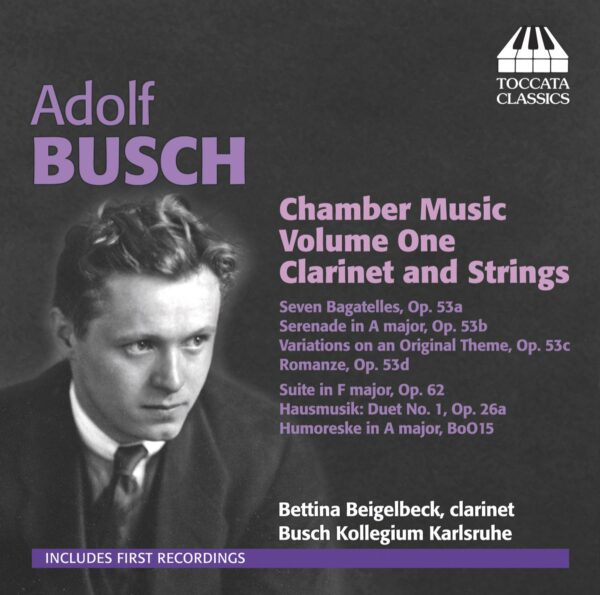
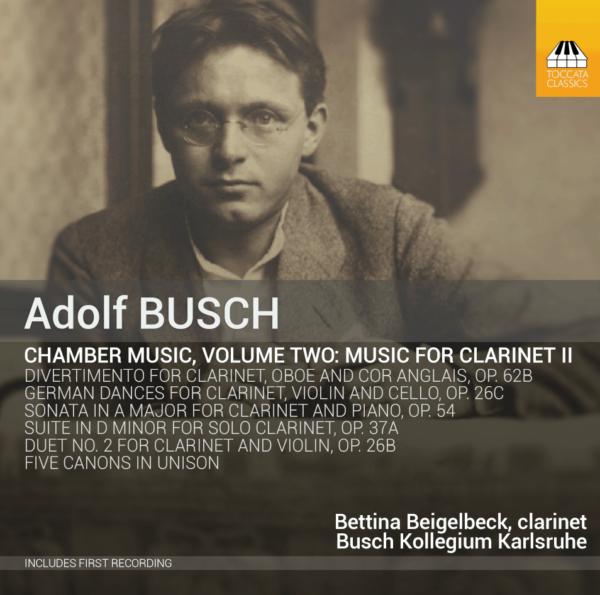
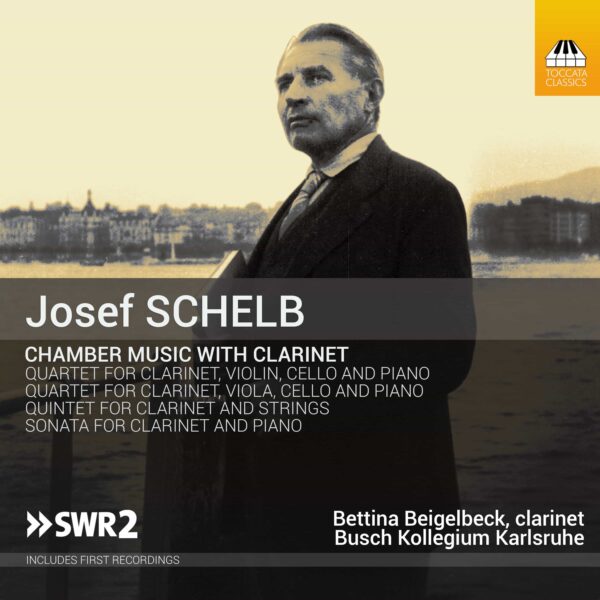
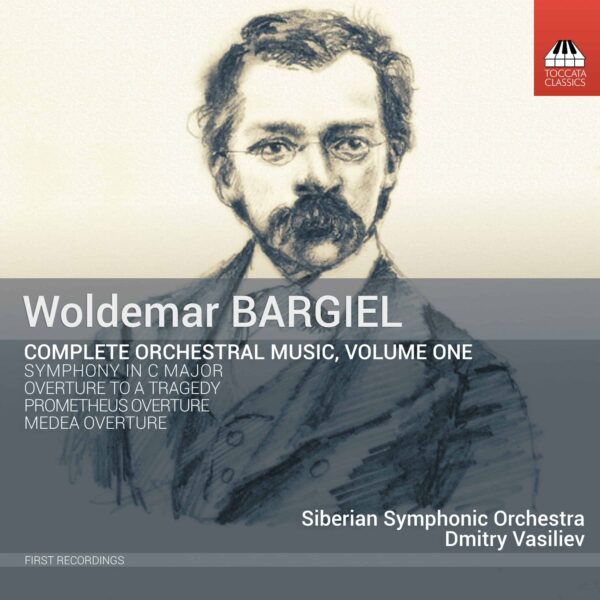
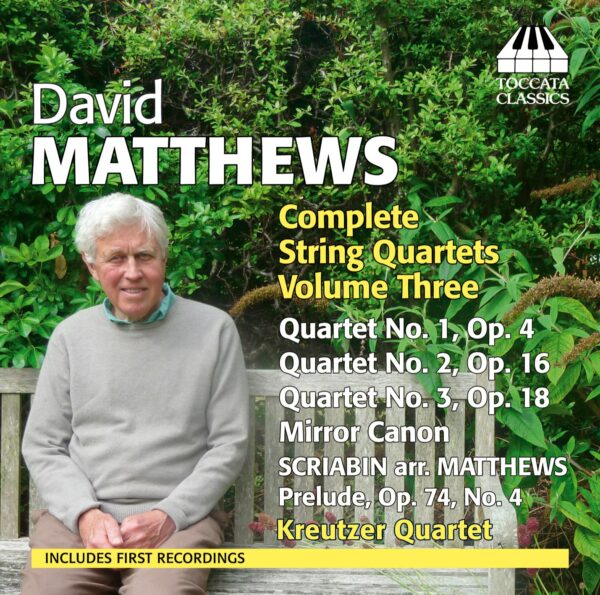
The Guardian :
‘Adolf Busch (1891-1952) was a violinist first and foremost, best remembered now as the founder and leader of what was probably the greatest string quartet of the 20th century.…These chamber works with clarinet, date from different periods in his composing life. …The style is broadly late-romantic, Brahmsian, with occasional hints of Hindemith-like neoclassicism.’
—Andrew Clements, The Guardian
MusicWeb International :
‘The works for clarinet and strings are what I called a subset of his output and so it proves here, though Toccata’s programme ranges just a bit wider and includes no fewer than five world premiere recordings. …The performances are hard-working and assiduous.’
—Jonathan Woolf, MusicWeb International
Fanfare Magazine :
‘…Busch remained true to Richard Strauss and Max Reger as models for melodic and harmonic inspiration, and to Mozart for compositional forms, with perhaps just a hint of Korngold peeking in for good measure. That said, there is a distinctive voice, and a very enjoyable one at that; if not truly memorable, the melodic lines always have great fluidity and grace and fall easily upon the ear, yet are always substantial enough to avoid the trite and ephemeral. Both the influence of Reger, and Busch’s profound dedication to Bach, are apparent in the composer’s use of counterpoint and fugue (cf. the first movement of the Hausmusik and the second of the Suite). …The performances here are exemplary. Clarinetist Bettina Beigelbeck has a particularly lovely tone, rich and silky, without even a hint of squawkiness in the upper register, and a seamless legato. The various string players here who are collectively labeled the “Busch Kollegium Karlsruhe” for this enterprise are fully worthy partners in their various supporting roles, with nary a wiry or scratchy-sounding bow stroke between them. …enthusiastically recommended.’
—James A. Altena, Fanfare Magazine
Das Orchestra :
‘Von den Interpreten, die größtenteils in süddeutschen Orchestern tätig sind, wird diese mit großem Engagement realisiert.’
—Heribert Haase, Das Orchestra, March 2014
MusicWeb International :
‘If you’re interested in the repertoire, or just need something easygoing for a rainy Saturday spent reading by a fire, I say go for it.’
—Biran Wilson, MusicWeb International
International Record Review :
‘There can be no doubting Busch’s mastery of the craft of composition in the pieces collected here, which demonstrate a delicate blend and balance and a sharp mind for counterpoint.’
—International Record Review
Klassik Heute :
‘Bei allen Verweisen ist Buschs Handschrift aber vor allem eins, nämlich durch und durch eigenständig. Gedankliche Tiefe und Humor sind die Grundlage für einen immensen musikalischen Einfallsreichtum, der sich in den Sieben Bagatellen op. 53a für Klarinette, Viola und Cello (1936) so ungehindert wie in keinem der übrigen hier eingespielten Werke Bahn bricht und bei aller kunstvollen Satztechnik nie auf sein hervorstechendstes Merkmal verzichtet: auf eine immer zugängliche melodische Schönheit, eingebettet in einen elegant dahinfließenden Stimmverband, in dem Klarinette und Streichinstrumente gleichberechtigt behandelt werden. Ein Glück, dass sich auch Bettina Beigelbeck und ihre Mitstreiter vom Busch Kollegium Karlsruhe als gleichberechtigte Partner verstehen, die ihre makellosen Wiedergaben zwischen intimer Zurückhaltung, großen Phrasen und vitalem Auftrumpfen ganz in den Dienst eines klanglich idealen Mischungsverhältnisses und einer überaus eloquenten Musizierhaltung stellen. Auch aus diesem Grund machen diese Busch-Entdeckungen Lust auf mehr.’
English translation:
‘Despite all the references, Busch’s signature style is above all else: utterly original. Intellectual depth and humor form the basis for an immense musical inventiveness, which manifests itself in the Seven Bagatelles, Op. 53a, for clarinet, viola, and cello (1936) more freely than in any of the other works recorded here. For all its artful compositional technique, it never relinquishes its most striking characteristic: an ever-accessible melodic beauty, embedded in an elegantly flowing texture in which the clarinet and string instruments are treated as equals. It is fortunate that Bettina Beigelbeck and her colleagues from the Busch Kollegium Karlsruhe also see themselves as equal partners, placing their flawless performances—ranging from intimate restraint to expansive phrases and vibrant exuberance—entirely at the service of an ideal sonic blend and an exceptionally eloquent approach to music-making. For this reason, too, these Busch discoveries whet the appetite for more.’
—Christof Jetzschke, Klassik Heute
Klassisk Musikkmagasin :
‘Adolf Busch var mest kjent som fiolinist, men var også en dyktig komponist, noe denne gruppen av verk for klarinett og strykere, den første i enda en Toccata Classics-serie, viser. […] Bettina Beigelbeck er en sympatisk og allestedsnærværende klarinettist, vakkert støttet av solister fra Busch Collegium, særlig bratsjist Wolfgang Wahl som er med på de tre første sporene. Super lyd.’
English translation:
‘Adolf Busch was best known as a violinist, but he was also a skilled composer, as this group of works for clarinet and strings, the first in yet another Toccata Classics series, demonstrates. […] Bettina Beigelbeck is a likeable and omnipresent clarinetist, beautifully supported by soloists from the Busch Collegium, especially violist Wolfgang Wahl who appears on the first three tracks. Superb sound.’
—Guy Rickards, Klassisk Musikkmagasin